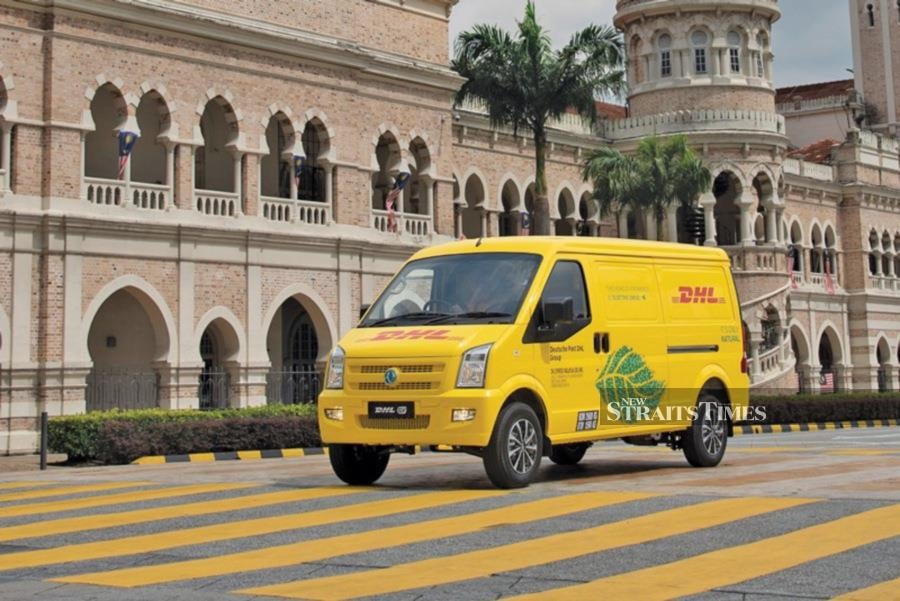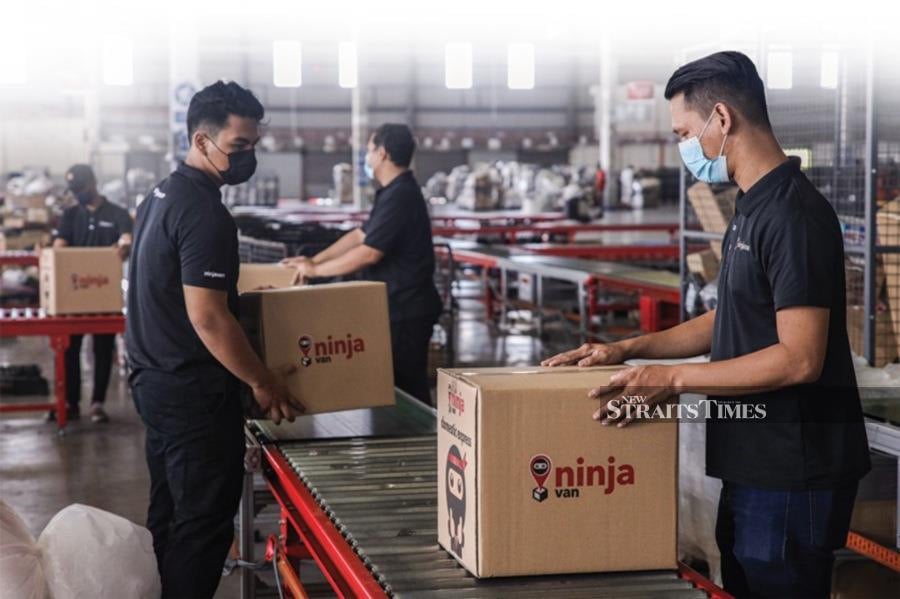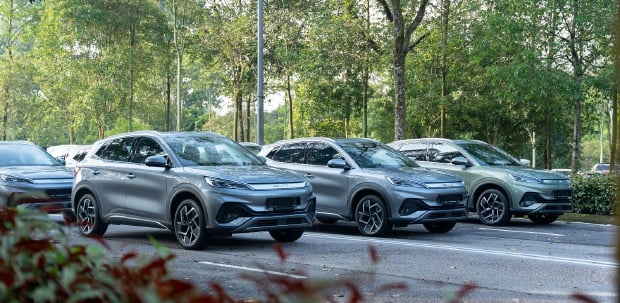KUALA LUMPUR: Domestic e-commerce logistics players are leveraging automation and digitalisation in anticipation of an upswing of parcel volume experienced for the upcoming festive and year-end periods.
Companies are also engaging more delivery drivers and increasing the frequency of pick-up and delivery during the holiday period.
Ninja Van Malaysia Sdn Bhd chief executive officer Adzim Halim said that typically, there is an incredible upswing of parcel volume experienced by courier companies across the board during the festive and year-end period.
"In the past three years alone, Ninja Van Malaysia has seen an average parcel volume increase of 60 per cent during the festive season.
"Looking at this year alone, our busiest season has seen about a 50 per cent increase in parcel volume compared to non-peak seasons.
"Considering the continued growth in e-commerce and the expansion of services beyond last-mile delivery and investments in technology, courier companies across the board can anticipate a promising outlook for the coming year," he told Business Times.
Adzim said that as a group, Ninja Van has committed to invest US$50 million (RM239 million) to modernise and automate parcel processing capabilities across Southeast Asia, including our 260,000-square-foot automated hub in Shah Alam.
The investment is a region-wide exercise that involves equipping nine key regional hubs with automation technology by the second half (2H) of 2024 and aims to increase improvements in Ninja Van's operational productivity by up to 50 per cent.
Ninja Van's integrated automation system, launched earlier this year, can now sort out, weigh, measure, and scan up to 30,000 parcels per hour.
The system also provides accurate, real-time parcel data, increasing sorting and parcel tracking efficiency.
"As a result, its daily parcel processing capability is projected to increase by almost 35 per cent.
"Through such tech-driven innovations, we are committed to accelerating automation and other operational improvements to provide hassle-free deliveries for shippers and shoppers in Malaysia, Adzim said.
He said that across the wider sector, the logistics company witnessed how the pandemic has disrupted supply chains, particularly for small and medium business owners.
"We have been building several value-added services to help our clients create more stable and efficient micro-supply chain processes.
"These include our procurement service Ninja Direct, fulfilment and warehousing services (Ninja Fulfillment), and cross-border shipping with customs support to help businesses ship their orders across our well-established Southeast Asian network," Adzim said.

DHL Express Malaysia and Brunei managing director Julian Neo said festive seasons and, by extension, peak periods will continue to test the resilience of supply chains.
"We are looking forward to our new Kuala Lumpur Gateway, which will be ready in 2024 and represents our most significant local investment to date at RM300 million.
"The facility will have an automated sort system that can handle 10,000 packages per hour, 24 hours a day.
"This translates to a 400 per cent more shipment processing capacity than the existing Kuala Lumpur Gateway," Neo said.
He said DHL Express Malaysia has practices to ensure minimal disruptions during peak periods, and the same applies to festive seasons.
"Manpower-wise, we are served by a 1,400-strong workforce nationwide and hire additional associates across business units to support delivery operations when needed.
"We further expand our capabilities by scheduling extra flights, extending pick-up and drop-off times, and imposing weight restrictions to control cargo space," Neo further said.
To keep up with growing consumer demand, Neo said e-commerce logistics companies must look into automation and efficiency technologies to help with productivity.
He said there are important trends, such as indoor mobile and stationary robots extending a hand to staff on the ground.
Indoor mobile robots have greatly diversified over the years with continual technological advancements.
These indoor mobile robots can move goods from one point to another, help with loading and unloading containers or trucks, and even assist in facility support with cleaning and security.
On the other hand, stationary robots can be placed strategically in warehouses or hubs to optimise processes.
Neo said DHL, as a group, is the only logistics company with the services and capabilities to link the entire e-commerce supply chain backed by a vast global network connecting us to over 220 countries and territories worldwide.
"Our Malaysian network encompasses six gateways, 21 service centres, 185 retail points of sale, more than 300 vehicles, over 60 weekly flights, and four dedicated aircraft to ensure comprehensive service coverage and an omnichannel approach to our customer service availability," he said.
/end





